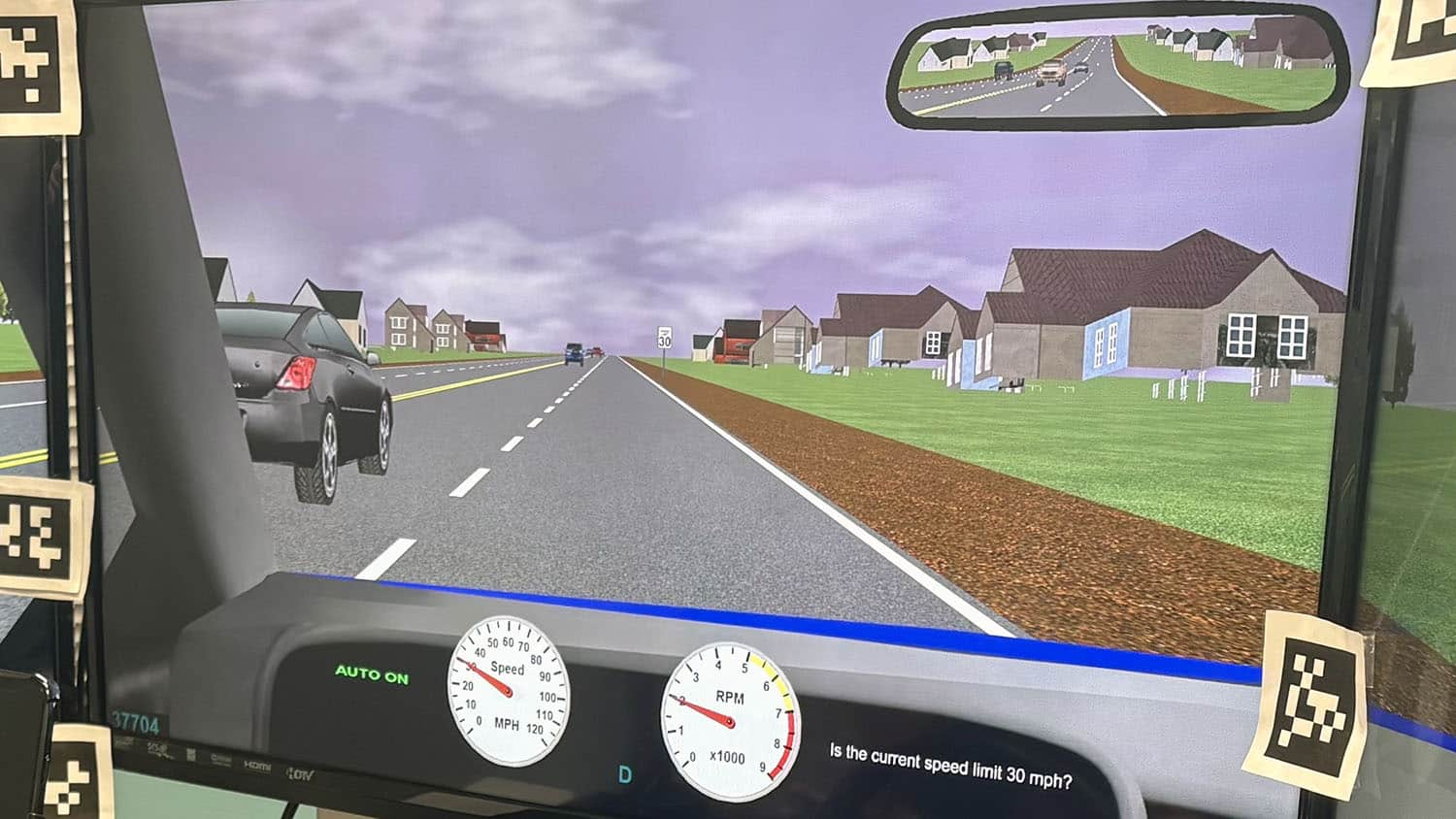Research Partners: Robots, Soldiers and Scientists
NC State psychology faculty and students partner with West Point to research cadets’ attitudes toward using robots in military training
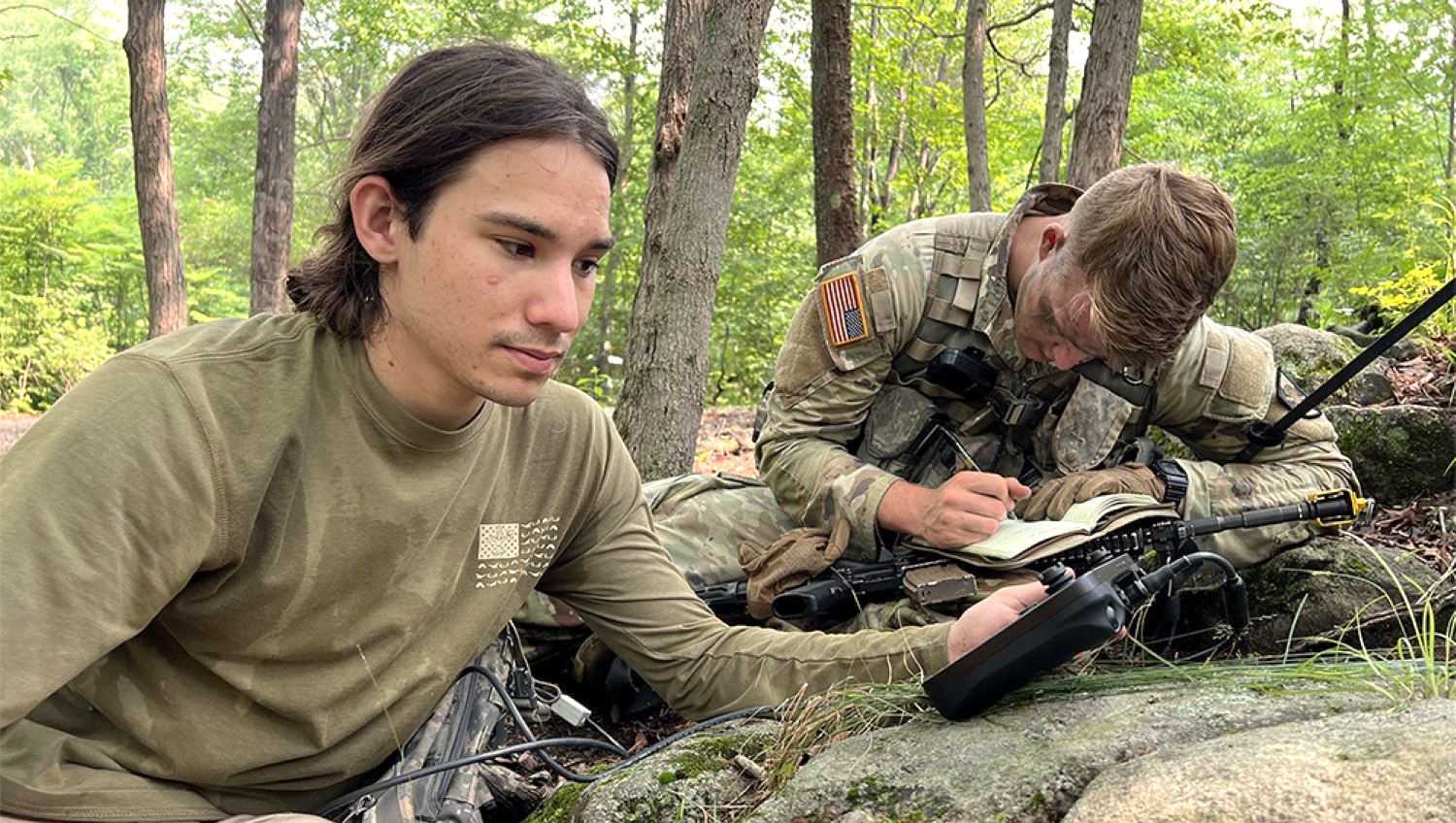
Consider this: The new team member of your military training group can climb stairs, take over an enemy area, navigate rough terrain and more. But there’s a catch — this newcomer is a 65-pound robot.
What’s the team’s attitude toward its robotic teammate?
That’s the backdrop against which NC State psychology faculty and students partnered with West Point engineering psychology faculty to research cadets’ attitudes about training with a mobile robot. The goal? Investigate whether this technology disrupts or supports team trust and cohesion.
To that end, NC State psychology professor Anne McLaughlin and six graduate and undergraduate students spent two weeks this summer conducting field research with Ericka Rovira, professor of engineering psychology at West Point. They did so while the cadets underwent training exercises with the robot in West Point training areas.
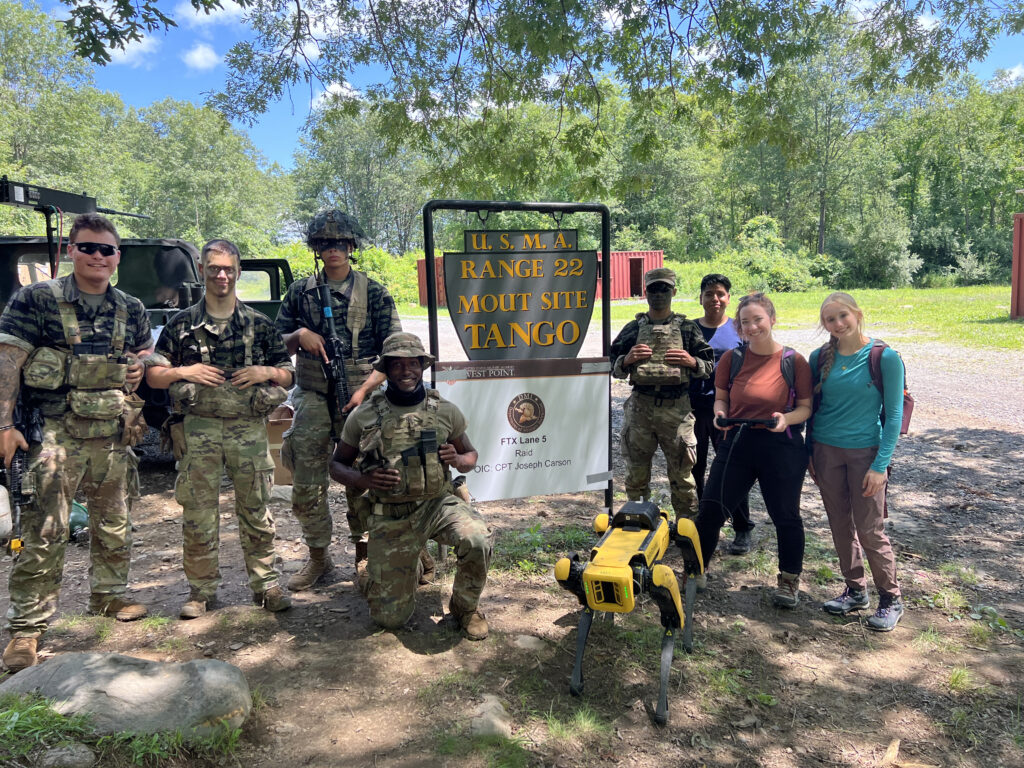
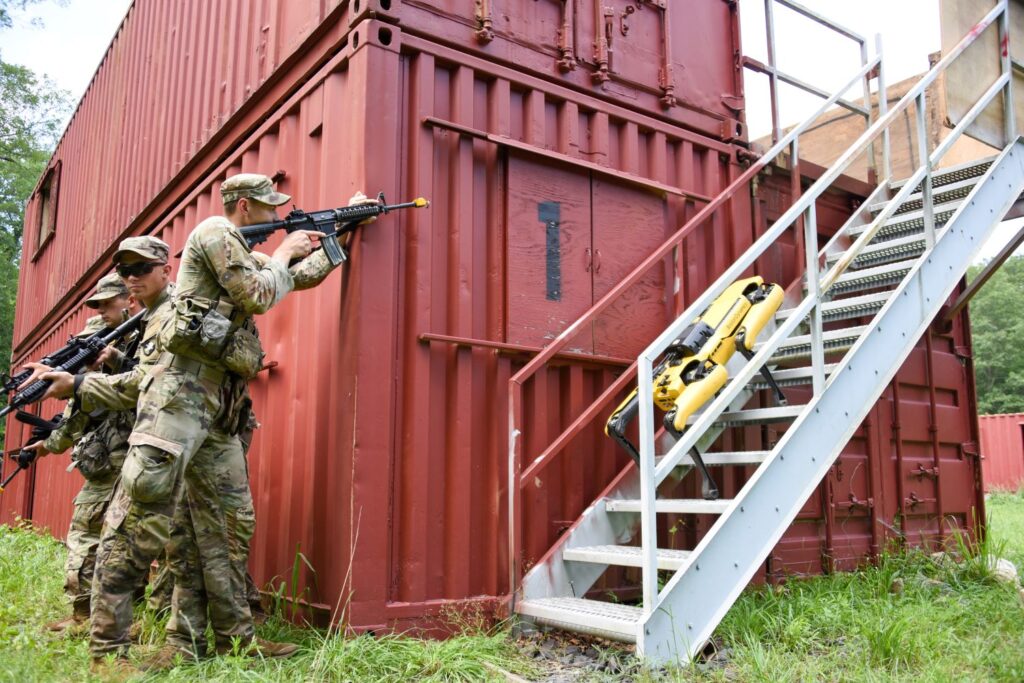
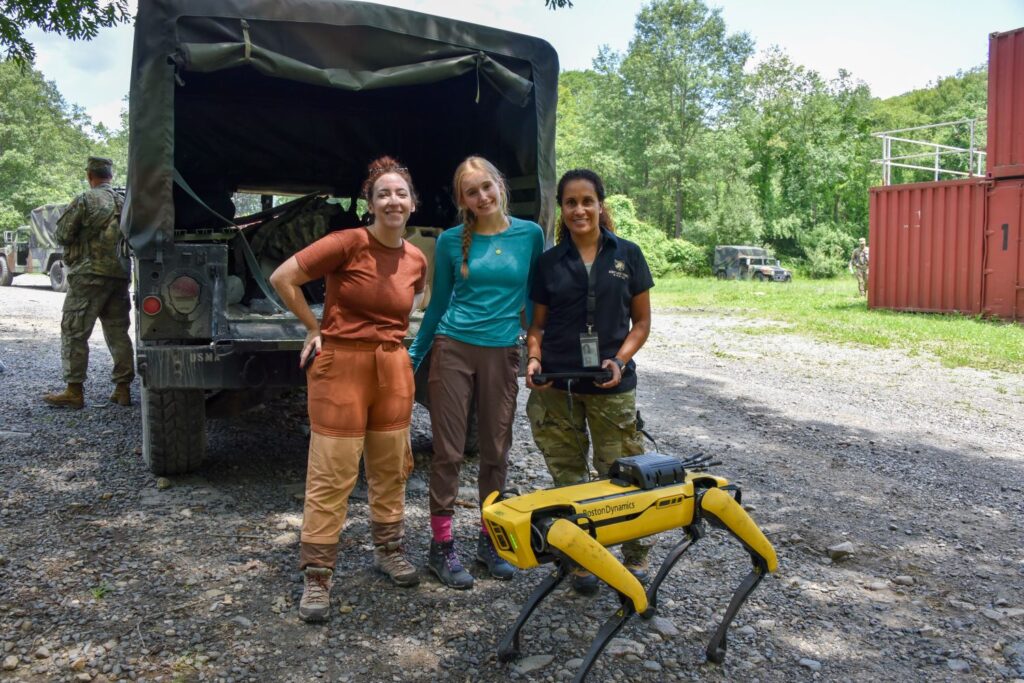
The project is a great example of how human factors psychologists can inform useful and safe designs, McLaughlin said.
“Unless you are interacting with the users of an eventual product and understanding their needs, you’re always going to make a mistake,” McLaughlin said. “To prevent that is to have a human factors psychologist or engineer involved from the start, so you’re working in tandem with developing a product to fit the users and the tasks it’s required to do.”
For McLaughlin and her students, it was an intense yet unique research experience. The NC State team arrived at West Point the day after historic flooding in New York, with washed-out roads and bridges between them and the data collection site, had only one day to practice with the robot, were drenched in bug repellent to avoid ticks, and collected the data on paper because cadets could not use cell phones during their training exercises.
“This is the wildest research project I’ve ever been on,” McLaughlin said, adding that it also helped students learn about working in the field and managing the logistics of an experiment.
Just ask senior Trevor Patten, a double major in psychology and Japanese. “I participated in the fieldwork to build my experience and boost my understanding of actual research,” he said.
Patten was involved with planning the research, collecting the data and running the experiments with the robot and cadets.
“Running around in the woods with this robot was quite an experience…,” he said. “I got to be right there with the cadets as they go and attack a target. It was really, really cool.”
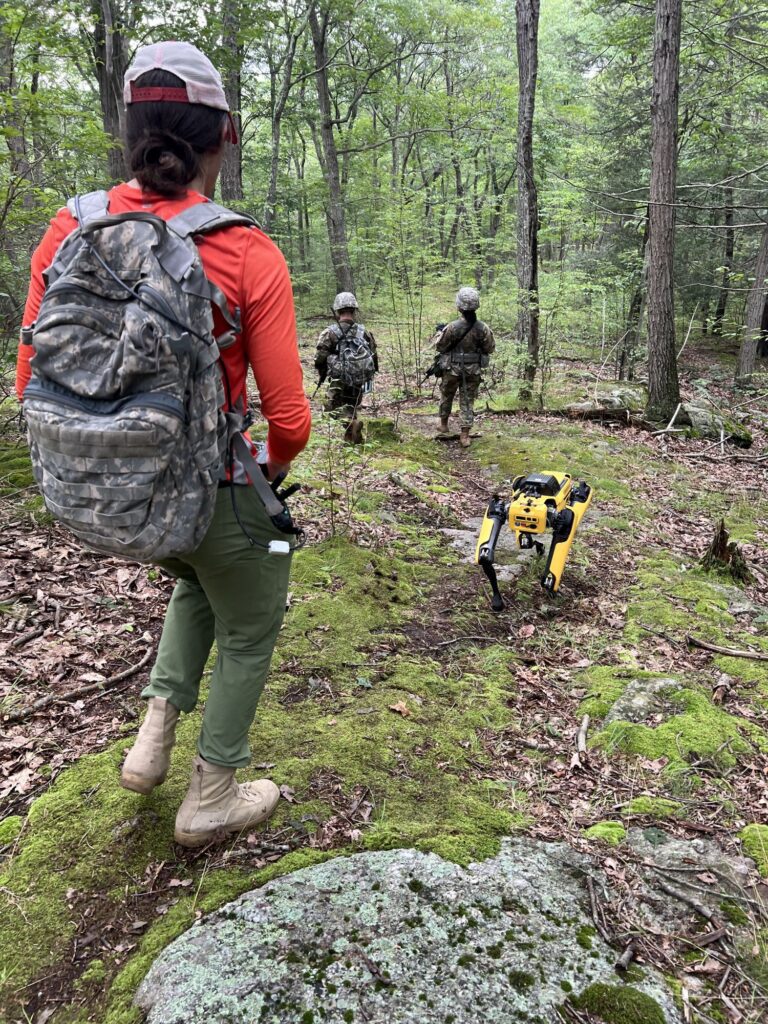
Patten said the communication and problem-solving skills he learned in the classroom helped him succeed in the field.
“There were about eight of us up there at the same time, and we’re all scattered across the side of a mountain trying to figure out how we’re getting supplies and data and where everybody is,” he said.
”Communicating effectively and devising creative solutions to unique problems carried over well.”
He learned some new skills, too. Among them was how to speak confidently in front of large groups of people.
How did the experience influence Patten’s coursework and long-term goals? He said he changed the focus of his coursework to be more research-intensive and hopes to attend graduate school to study human automation and human-robot interaction.
As for next steps with the research project, McLaughlin, Patten and the rest of the research team will organize the 11,000 sheets of surveys they collected into an analyzable format. They will also collaborate with an NC State electrical engineering faculty member to write a program that will directly and automatically read the survey data and turn it into a spreadsheet, McLaughlin said.
“In human factors psychology, we’re always trying to understand how to improve systems and products,” she added.
The field research is part of a larger West Point project led by Rovira and aimed at developing models of effective human-robot teaming. Rovira is also collaborating with Army scientists to investigate designing robots that have the potential to interact successfully with and meet the needs of soldiers in uncertain environments, she said.
But that is in the future!
- Categories:


